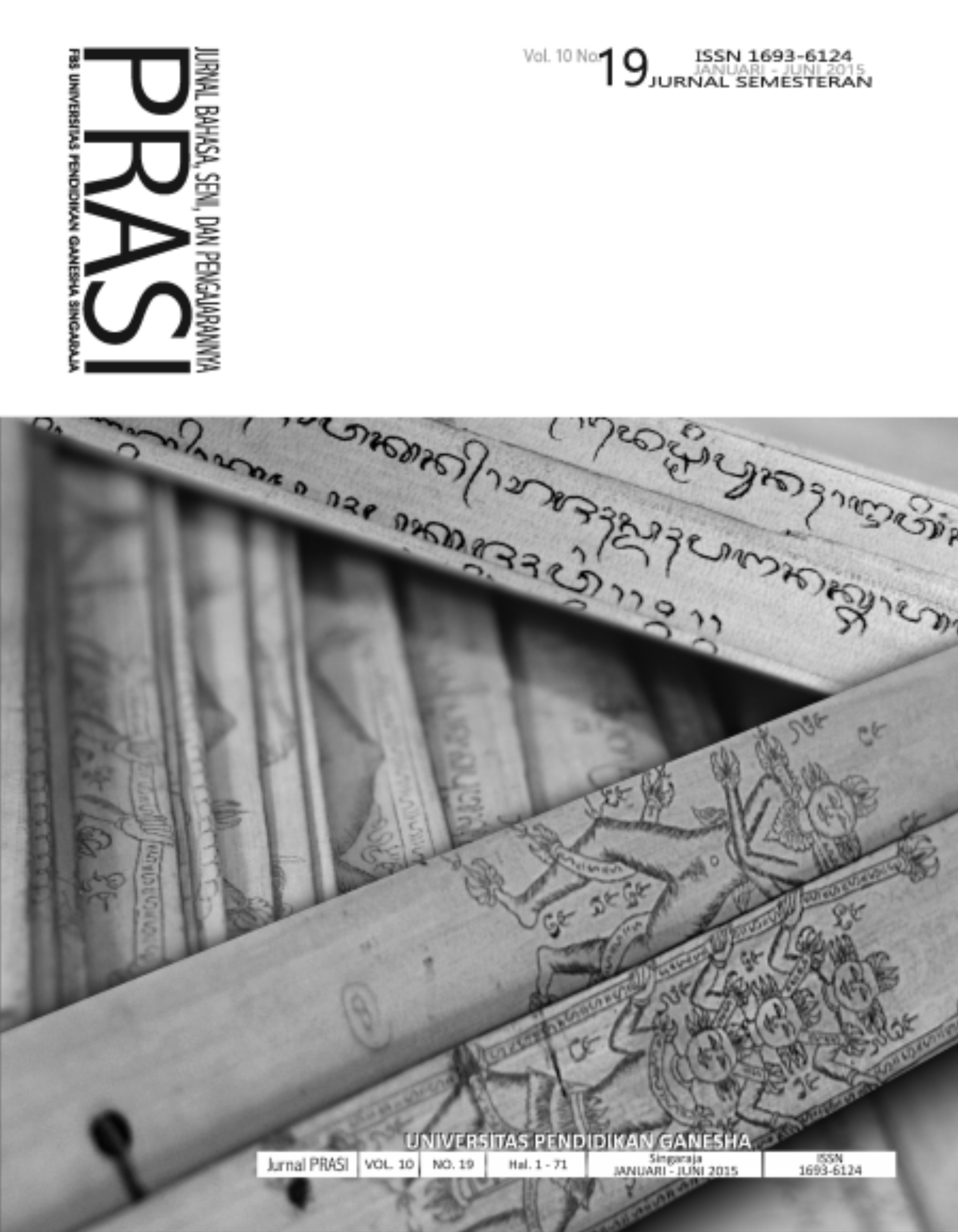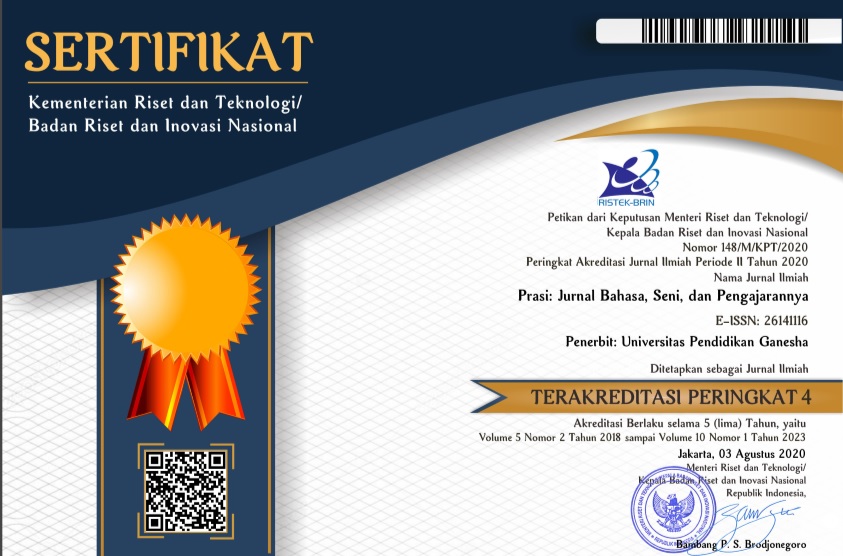PENGAJARAN BAHASA INGGRIS GLOKAL: PENDIDIKAN BAHASA ASING DI BAWAH PAYUNG BUDAYA NASIONAL
DOI:
https://doi.org/10.23887/prasi.v10i19.8849Abstract
ABSTRACT
There are worries that the teaching of English as a foreign language (EFL) in Indonesia will cause a decline in the younger generation’s appreciation of the national culture as an impact of the foreign culture embedded in the language. In solution to this problem, a serious examination of the language and the way it is taught and learned in Indonesia is to be done particularly in relation to the impact of globalization on the mind of the students. As an international language English is now used by more people who speak it as a second language than its native speakers, which has brought about a change in the language and the way it is used throughout the world, a phenomenon that has come to be called ‘glocal’ English. This change deserves serious attention among EFL teaching practitioners in our schools. A shift of orientation in EFL teaching is necessary, that is, a shift from a native-speaker model to a bilingual-speaker model, in which the local culture inevitably colors its use. The teaching of glocal English in our schools can prevent our students from the negative impact of the foreign culture that the language may contain.
Key words: EFL teaching, glocal English, national culture
Downloads
Published
Issue
Section
License
Authors who publish with Prasi agree to the following terms:- Authors retain copyright and grant the journal the right of first publication with the work simultaneously licensed under a Creative Commons Attribution License (CC BY-SA 4.0) that allows others to share the work with an acknowledgment of the work's authorship and initial publication in this journal
- Authors are able to enter into separate, additional contractual arrangements for the non-exclusive distribution of the journal's published version of the work (e.g., post it to an institutional repository or publish it in a book), with an acknowledgment of its initial publication in this journal.
- Authors are permitted and encouraged to post their work online (e.g., in institutional repositories or on their website) prior to and during the submission process, as it can lead to productive exchanges, as well as earlier and greater citation of published work. (See The Effect of Open Access)


.png)
.png)









